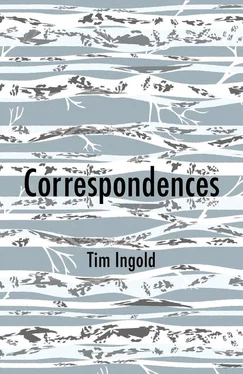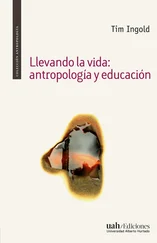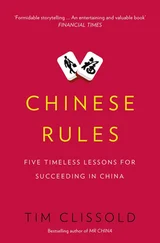Now there are some who can only comprehend a way of thinking by first assigning it to a school of thought. And from what I’ve said so far, they would probably guess that I was schooled in phenomenology. It’s perfectly true that I have been influenced by thinkers identified with this tradition. Yet phenomenology has not, for me, been a point of departure. I have never thought of it as an approach or way of working that I might first absorb and then apply. Like most things philosophical, it has grown on me more or less serendipitously, and has wormed its way into my thinking without my really noticing it. No doubt, this home-grown phenomenology of mine takes all kinds of liberties with the canonical texts, many of which I am happy to leave unread. Textual exegesis is a task for trained philosophers, and not for amateurs like me. I have always been slightly bemused by scholars who bury their heads in the most arcane and impenetrable of texts in the effort, they tell us, to get to the bottom of our experience as beings in a world. You would think that the best way to fathom the depths of human experience would be to attend to the world itself, and to learn directly from what it has to tell us. This is what inhabitants do all the time, in their daily lives, and we have much to learn from them. That’s why I continue to insist that if we are even to begin to resolve the crisis in our habitation of the world, then we should listen to the wisdom of inhabitants, whether they be humans or beings of other kinds, rather than taking shelter in the closeted self-referentiality of philosophical discourse.
If, today, our world is in crisis, it is because we have forgotten how to correspond. We have engaged, instead, in campaigns of interaction. Parties to interaction face each other with their identities and objectives already in place, and transact in ways that serve, but do nothing to transform, their separate interests. Their difference is given from the start, and remains afterwards. Interaction is thus a between relation. Correspondence, however, goes along . The trouble is that we have been so wrapped up in our interactions with others that we have failed to notice how both we and they go along together in the current of time. As I’ve tried to show, correspondence is about the ways along which lives, in their perpetual unfolding or becoming, simultaneously join together and differentiate themselves, one from another. This shift from interaction to correspondence entails a fundamental reorientation, from the between-ness of beings and things to their in-between-ness . 3Think of a river and its banks. We might speak of the relation of one bank to the other and, crossing a bridge, we might find ourselves halfway between the two. But the banks are perpetually forming and re-forming as the river waters sweep by. These waters flow in-between the banks, in a direction orthogonal to the span of the bridge. To say of beings and things that they are in-between is to align our awareness with the waters; to correspond with them is to join this awareness with the flow. Just such a shift of orientation is needed, I believe, if we are to understand the world as one that we can inhabit both now and for the foreseeable future. It is, in short, a condition for sustainable living.
All knowledge is crap: the waste product of a metabolic reaction. That, at any rate, is the conclusion which inevitably follows from the model of knowledge production imposed by our masters, whether they be educational institutions, business corporations or agents of the state. According to this model, knowledge is produced by harvesting quantities of data, and feeding it into machines that digest or process this ‘input’ and excrete the results, also known as ‘output’, at the other end. This excrement is the marketable currency of the knowledge economy. To the extent that human beings are involved at all in the productive process, they are but operators or technicians, there to serve the machines: to keep them supplied and in working order. Ideally, their presence and activity – beyond ensuring that the machines work – should have no bearing on the results. Inputs go in, outputs come out, what happens in-between is of no particular consequence. And as the results pile up, and the excremental heaps of knowledge relentlessly swell, life itself is consigned to the margins, fated to scavenge what it can from the accumulated waste of data processing on an industrial scale.
It is not beyond our grasp, however, to imagine an alternative world, in which the machines have been replaced with people. These people might still speak of ‘data’, but they would intend the term to be taken literally, as that which is given to them, so that they might live and know. They accept, with good grace, what the world offers to them, rather than attempting to extract – whether by force or subterfuge – what it does not. They are nourished by this offering, just as they are by the food they eat, and, as with food, they go on to digest it. But for them digestion is, above all, a process of life and growth. In producing knowledge, then, they are also producing their own selves as people who know. They are of course aware that any such process entails a degree of friction: not everything can be incorporated into growth and some things pass through undigested. There is surely no craft that does not, in the fashioning of its materials, generate copious quantities of waste, whether in the form of dust, shavings, chips or off-cuts. It is no different with the crafts of the intellect. But in this alternative world, waste is not knowledge. It only becomes knowledge when it is re-entered into a process of life.
No living being, however, can persist indefinitely, nor can it carry on its life in isolation. The continuity of life – and hence of knowledge too – requires of every being that it should play its part in bringing other lives into existence and sustaining them for however long it takes for the latter, in turn, to engender further life. It follows that all living, and all knowing, is intrinsically social, whether it be of trees in a wood, beasts in a herd or human beings in a community. Social life is one long correspondence. More precisely, it is a tangled mesh of correspondences, all going on concurrently, which weave into and around one another. They run, spinning here and there into topics like eddies in a stream. And they have three distinguishing properties. First, every correspondence is a process : it carries on. Secondly, correspondence is open-ended : it aims for no fixed destination or final conclusion, for everything that might be said or done invites a follow-on. Thirdly, correspondences are dialogical . They are not solitary but go on between and among participants. It is from these dialogical engagements that knowledge continually arises. To correspond is to be ever-present at the cusp where thinking is on the point of settling into the shapes of thought. It is to catch ideas on the fly, in the ferment of their incipience, lest they be washed away with the current and forever lost.
In the correspondences that make up this book, I have revelled in the freedom to throw off the shackles of academic convention, and to write unashamedly as an amateur. All true scholars, I believe, are amateurs. Literally, the amateur is one who studies a topic not – like the professional – in order to stage a career, but for the love of it, motivated by a sense of care, personal involvement and responsibility. Amateurs are correspondents. And in study they find a way of life that harmonizes with their whole way of living in the world. Admittedly, this appeal to amateurism is not without its pitfalls, especially in a political climate in which professional expertise is routinely dismissed as the posturing of a technocratic elite more interested in shoring up their own status and privilege than in listening to the common sense of ordinary, unlettered folk. Something must be added to our definition of what it means to be an amateur, lest we risk a descent into crude populism.
Читать дальше












